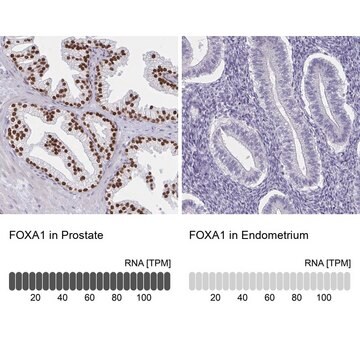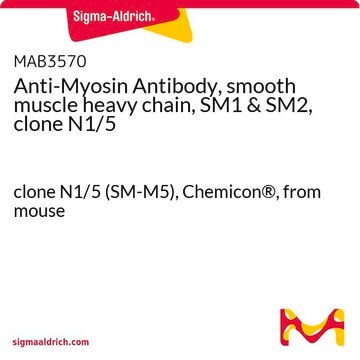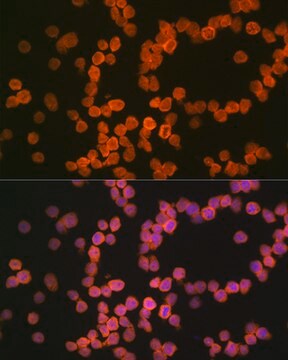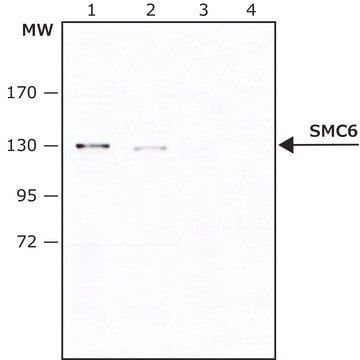MABT855M
Anti-Podoplanin Antibody, clone LpMab-13
clone LpMab-13, from mouse
Synonim(y):
Aggrus, Glycoprotein 36, Gp36, PA2.26 antigen, T1-alpha, T1A
About This Item
Polecane produkty
pochodzenie biologiczne
mouse
Poziom jakości
forma przeciwciała
purified immunoglobulin
rodzaj przeciwciała
primary antibodies
klon
LpMab-13, monoclonal
reaktywność gatunkowa
human
opakowanie
antibody small pack of 25 μg
metody
ELISA: suitable
flow cytometry: suitable
immunohistochemistry: suitable (paraffin)
western blot: suitable
izotyp
IgG1κ
numer dostępu NCBI
numer dostępu UniProt
docelowa modyfikacja potranslacyjna
unmodified
informacje o genach
human ... PDPN(10630)
Opis ogólny
Specyficzność
Immunogen
Zastosowanie
Flow Cytometry Analysis: A representative lot detected Podoplanin in Flow Cytometry application (Ogasawara, S., et. al. (2016). Monoclon Antib Immunodiagn Immunother. 35(3):155-62).
Immunohistochemistry Analysis: A representative lot detected Podoplanin in Immunohistochemistry application (Ogasawara, S., et. al. (2016). Monoclon Antib Immunodiagn Immunother. 35(3):155-62).
Western Blotting Analysis: A representative lot detected Podoplanin in Western Blotting application (Ogasawara, S., et. al. (2016). Monoclon Antib Immunodiagn Immunother. 35(3):155-62).
Cell Structure
Jakość
Immunohistochemistry Analysis: A 1:250 dilution of this antibody detected Podoplanin in human testis cancer tissue.
Opis wartości docelowych
Postać fizyczna
Przechowywanie i stabilność
Inne uwagi
Oświadczenie o zrzeczeniu się odpowiedzialności
Nie możesz znaleźć właściwego produktu?
Wypróbuj nasz Narzędzie selektora produktów.
Kod klasy składowania
12 - Non Combustible Liquids
Klasa zagrożenia wodnego (WGK)
WGK 1
Certyfikaty analizy (CoA)
Poszukaj Certyfikaty analizy (CoA), wpisując numer partii/serii produktów. Numery serii i partii można znaleźć na etykiecie produktu po słowach „seria” lub „partia”.
Masz już ten produkt?
Dokumenty związane z niedawno zakupionymi produktami zostały zamieszczone w Bibliotece dokumentów.
Nasz zespół naukowców ma doświadczenie we wszystkich obszarach badań, w tym w naukach przyrodniczych, materiałoznawstwie, syntezie chemicznej, chromatografii, analityce i wielu innych dziedzinach.
Skontaktuj się z zespołem ds. pomocy technicznej








